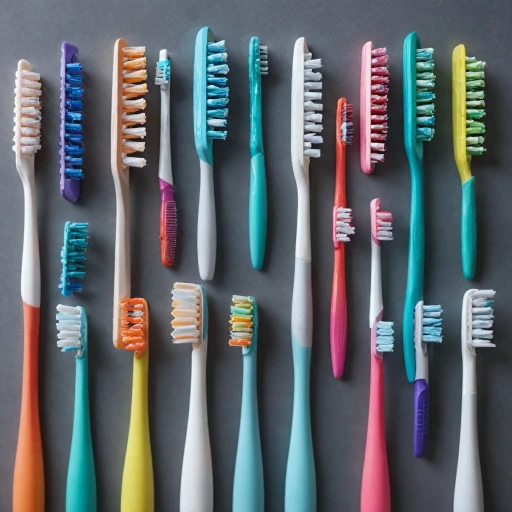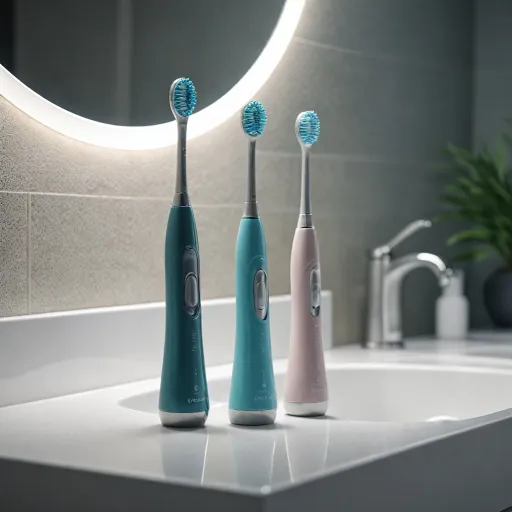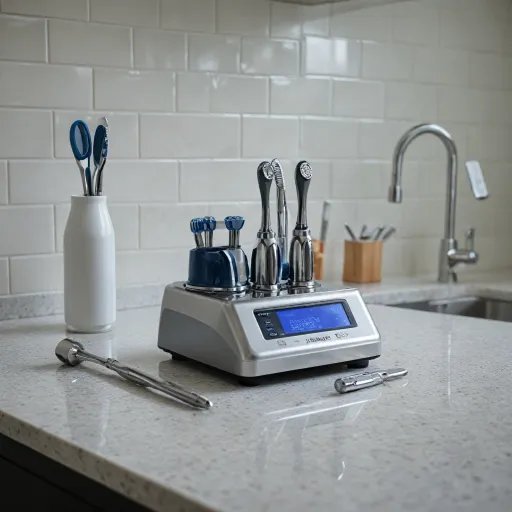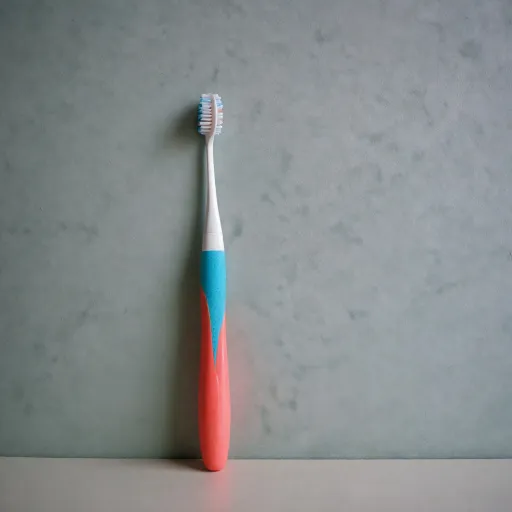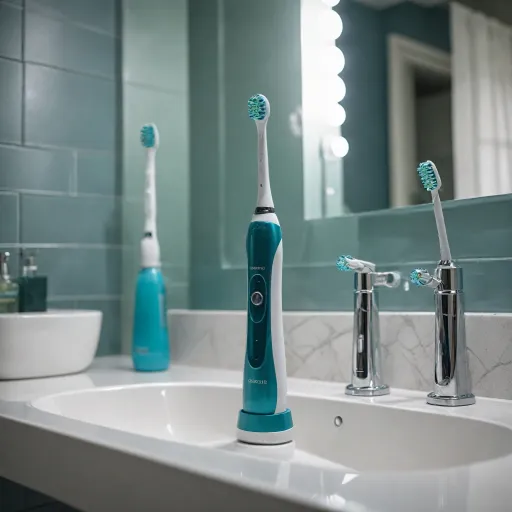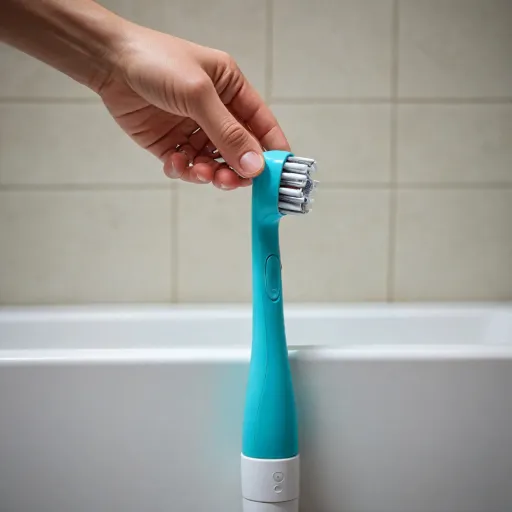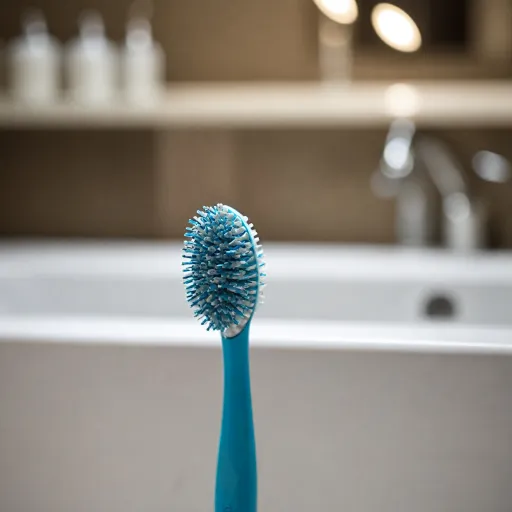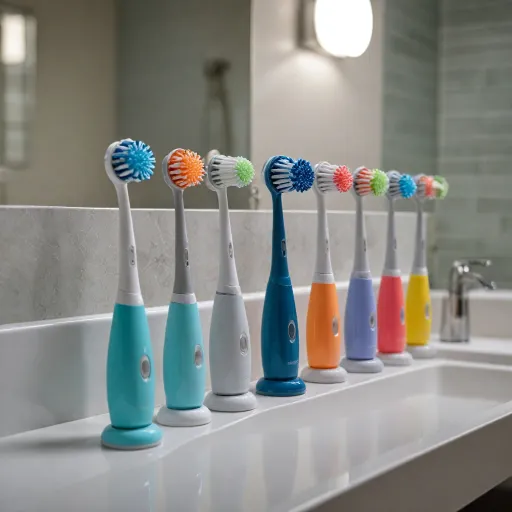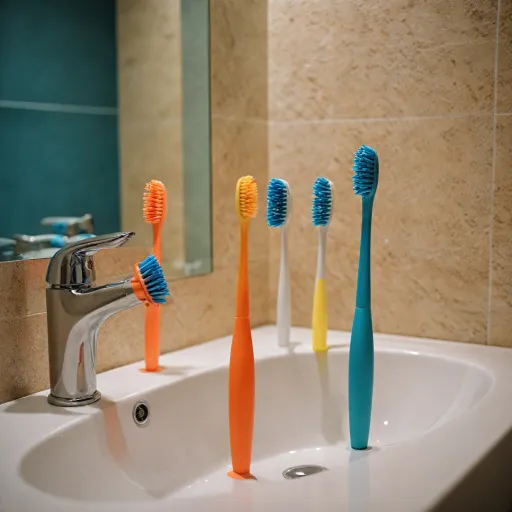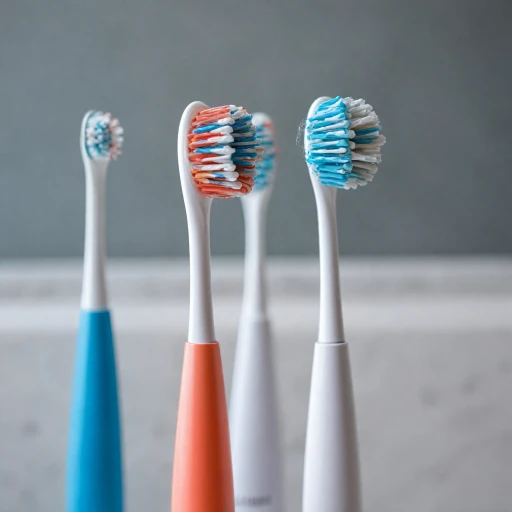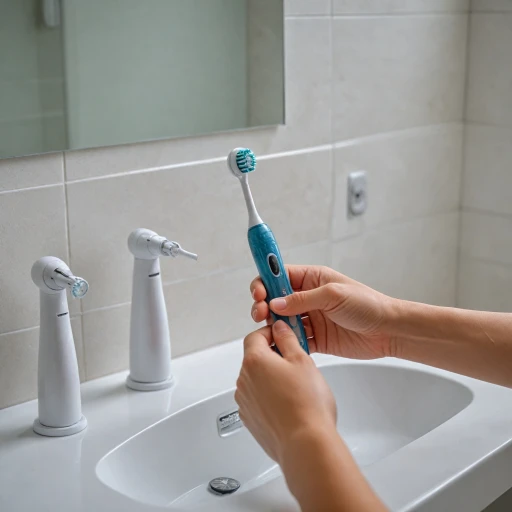
How Ultrasonic Teeth Cleaners Work
Delving into the Mechanics of Ultrasonic Teeth Cleaning
Understanding how ultrasonic teeth cleaning operates can seem like a complex process, but it's actually rooted in straightforward principles that enhance oral care. The ultrasonic teeth cleaner employs high-frequency sound waves to produce rapid vibrations, often reaching millions of pulses per minute. This innovative technology is not only effective but also gentle, making it a preferred option for those seeking a deep clean without excessive abrasion. The device, often referred to as an ultrasonic scaler, targets plaque and calculus build-up along the gumline and on the surfaces of the teeth. Through these vibrations, it disrupts and breaks apart the bacteria-filled biofilm that develops into plaque. This cleaning process is not only beneficial for routine cleanings but is particularly useful for those wearing dental appliances like aligners and retainers. Moreover, the ultrasonic method introduces small water jets that help wash away loosened debris and keep the cleaning process smooth and comprehensive. This combination of ultrasonic waves and water creates an effective cleaning environment that aligns with modern preventive dental care strategies, ensuring better overall oral hygiene. Exploring different cleaning methods can unveil the distinct advantages of ultrasonic dental technology over traditional toothbrushes. Incorporating various cleaning modes, these cleaners offer a pro-level dental experience that many dentists advocate for their patients. For those looking to enhance their oral hygiene regimen, an ultrasonic teeth cleaner might just be the best choice. To learn more, you can explore this ultrasonic cleaning process that’s reshaping how we approach dental health today.Benefits of Using an Ultrasonic Teeth Cleaner
Advantages of Incorporating Ultrasonic in Your Oral Care Routine
When it comes to keeping your teeth clean, ultrasonic teeth cleaners stand out due to their advanced cleaning capabilities. These devices utilize ultrasonic waves for a deep clean that addresses not just surface stains but also more stubborn deposits like plaque and calculus. Here's why incorporating ultrasonic technology in your dental care regimen can be beneficial:- Enhanced Cleaning Efficiency: Unlike traditional electric toothbrushes, ultrasonic cleaners use sound waves to agitate the fluid surrounding your teeth, making them excellent at dismantling plaque and calculus.
- Gentle on Teeth and Gums: The gentle vibrations are safe for daily use and generally well received by individuals with sensitive teeth or dental appliances, such as aligners and retainers.
- Multiple Modes for Personalized Care: Many ultrasonic tooth cleaners come with various modes, allowing you to customize the cleaning intensity to suit your oral care needs, which is particularly beneficial if you have sensitive areas or need a deep clean.
- Convenience and Time-saving: An ultrasonic teeth cleaner significantly reduces the effort needed for effective teeth cleaning, saving you time while providing thorough care.
Comparing Ultrasonic and Traditional Electric Toothbrushes
Spotting the Differences: Ultrasonic vs. Traditional Electric Toothbrushes
Understanding the distinctions between ultrasonic cleaners and conventional electric toothbrushes can significantly enhance your oral care routine. Though both aiming for thorough teeth cleaning, their underlying technology and results can vary.- Technology Comparison: The primary variance lies in the cleaning methods. Traditional electric toothbrushes often employ rotational or oscillating motion to remove plaque and food particles manually. In contrast, ultrasonic tooth cleaners utilize high-frequency sound waves to break up plaque and calculus without the need for direct contact.
- Plaque Removal Efficiency: Ultrasonic cleaning technology is renowned for its ability to break down plaque calculus at a microscopic level, which may enhance the effectiveness of plaque removal when compared to the mechanical actions of traditional electric toothbrushes. This feature can be particularly beneficial for people with dental appliances like braces or retainers.
- Cleaning Modes and Safety: Traditional models might offer various brushing modes catered to user preferences, like sensitive teeth or whitening settings. Ultrasonic cleaners provide a different fill by ensuring a deep clean through sound waves, potentially making them a safer choice for individuals with sensitive gums or specific oral care needs.
- User Experience: Ultrasonic tooth cleaners often receive positive reviews for their silent operation and ease of use. Users tend to appreciate the less aggressive nature of the cleaning process compared to electric models. Additionally, these tools can promote dental care efficiency, ultimately reducing the need for frequent dentist visits.
- Cost and Longevity: The investment in a high-quality ultrasonic cleaner could save money in the long run due to its thorough cleaning capacity and reduction in dental care costs. For those seeking investment in the best oral care device, it's crucial to consider both upfront costs and potential savings.
Choosing the Right Ultrasonic Teeth Cleaner
Factors to Consider When Selecting Your Device
Choosing the best ultrasonic tooth cleaner for your needs involves taking several important factors into account. This decision can significantly impact your overall oral care routine, so it's crucial to make an informed choice. Here are a few key points to keep in mind:
- Cleaning Modes: Look for a tooth cleaner that offers multiple cleaning modes. This flexibility allows you to tailor the cleaning process to your specific dental needs, whether it’s a basic clean or focusing on heavy plaque removal.
- Safety Features: Many users prioritize safety, making it wise to choose a device with carefully designed safeguards. Ultrasonic cleaners should provide safe user experiences while ensuring effective plaque and calculus removal.
- Professional Recommendations: Consult reviews and recommendations from pro dentists and oral care professionals. Their expertise can guide you in selecting a reliable and effective ultrasonic dental cleaner.
- Compatibility with Dental Appliances: If you use aligners, retainers, or other dental appliances, ensure your ultrasonic cleaner is suitable for use with these items. Some devices can effectively clean both teeth and dental appliances without causing damage.
- User Reviews and Testimonials: Real-world experiences shared in reviews can offer insights into the effectiveness and reliability of specific models. Look for feedback on long-term use and the device's ability to consistently clean teeth.
Investing in Your Oral Health
Your commitment to oral care is reflected in the tools you choose. Ultrasonic teeth cleaners offer an advanced approach to dental hygiene, potentially saving you time, money, and visits to the dentist. Ensure that the device you select is not only practical but also enhances your overall cleaning methods.
User Experiences and Testimonials
User Insights and Personal Accounts
Many users have shared their experiences with ultrasonic teeth cleaners, shedding light on how these devices have impacted their oral care routine. Customers often highlight the effectiveness of ultrasonic cleaning methods in removing plaque and preventing calculus buildup. The gentle, yet efficient motion of ultrasonic tooth cleaners tends to leave them with a sensation of a professional dental cleaning.
People who use dental appliances like aligners or retainers frequently report significant improvements in maintaining oral hygiene. The ultrasonic teeth cleaning process complements aligners by ensuring that hard-to-reach areas remain free from debris and plaque. This is particularly important for users concerned about maintaining optimal oral health while using orthodontic devices.
Moreover, the ability to switch between various modes has been praised by users, allowing them to customize their cleaning experience according to their specific needs. Reviews often mention how beneficial these settings are for addressing sensitive gums or achieving a deep clean after certain meals or drinks.
Individuals who once faced challenges in removing stubborn plaque and calculus have expressed satisfaction with their pro-quality results at home. Many consider ultrasonic dental devices a cost-effective alternative to frequent dentist visits, allowing them to save time and money while still caring for their teeth thoroughly and safely.
The convenience and performance of these ultrasonic products have also been a highlight in user feedback. With ultrasonic cleaners becoming more compact and technologically advanced, users find them increasingly easy to use and integrate into daily routines, making them a best choice for maintaining dental hygiene between professional visits.
Frequently Asked Questions About Ultrasonic Teeth Cleaners
Answers to Common Inquiries about Ultrasonic Dental Cleaners
When it comes to using an ultrasonic tooth cleaner, many individuals have questions about its effectiveness, safety, and suitability for their dental care routine. Here's a compilation of frequently asked questions to help guide you in making informed decisions about your oral care.
Are Ultrasonic Dental Cleaners Safe for Everyday Use?
Safety is a common concern when introducing a new tool into your dental routine. Ultrasonic tooth cleaners are designed to be gentle on your gums and enamel when used correctly. Many models offer various modes tailored for different levels of cleaning, ensuring you can find a setting that suits your oral health needs while remaining safe for everyday use. However, consulting with your dentist for personalized advice is a prudent step.
Can Ultrasonic Cleaning Remove All Types of Plaque and Calculus?
Ultrasonic cleaning is renowned for its ability to dislodge plaque and tartar effectively, especially in hard-to-reach areas that traditional brushing might miss. The precise vibrations help breakdown even stubborn calculus deposits. Nevertheless, routine professional cleanings remain essential for ensuring comprehensive dental care.
Do I Need a Special Ultrasonic Cleaner for Dental Appliances or Aligners?
While ultrasonic cleaners efficiently cater to general teeth cleaning needs, those wearing dental appliances or aligners may benefit from specialized ultrasonic devices. These units are often designed to gently clean without damaging the structural integrity of the appliances, thus, preserving their functionality and lifespan. Always consult product specifics if you have such needs.
What are the User Experiences and Testimonials Saying?
Users often report noticeable improvements in their oral hygiene after incorporating an ultrasonic cleaner into their routine. Many reviews highlight the device's efficiency in leaving teeth feeling deeply clean with consistent use. Such positive feedback often aligns with recommendations by oral care professionals who favor ultrasonic methods for comprehensive cleaning.
If you're considering the addition of an ultrasonic cleaner to your routine, assessing your specific dental needs and exploring reviews from credible sources can guide you toward a choice that's both effective and satisfying.


